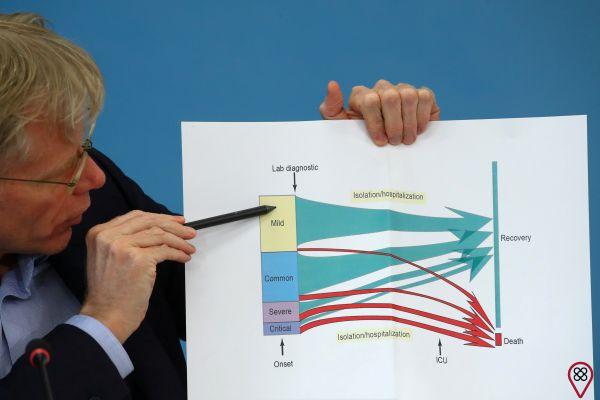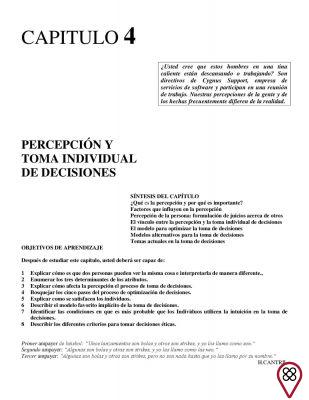“Philosophy teaches us to act, not to speak”. seneca
A stoic school it was founded in the XNUMXrd century BC in Athens by the Greek Zeno of Citium. The main idea of Stoicism is basically the wisdom of good living and/or living together. Even established hundreds of years ago, stoic thinkers left us a huge legacy of content. We, generations born in the womb of the metropolis, of addictions and modern diseases, can find in this philosophy a survival manual to follow the chaotic years of the XNUMXst century with more wisdom and tranquility.
I will quote here the Stoic Seneca, who was Nero's minister, Marcus Aurelius, a great leader and Roman emperor, and Epictetus, a crippled slave. These are the three protagonists who had completely different lives, but with only one philosophy: the good use of rationality to find the heart of happiness. The main concepts of the thinkers will be compiled and divided into 4 steps so that you can digest them more easily:
UNDERSTANDING NATURE AND HARMONY

The study of philosophy for the Stoics is, above all, to eliminate anguish from self-responsibility. But before we get to this core, let's go back to the beginning of everything: nature. Contemplating the Universe and all the miraculous particles that govern it is to recognize our smallness and wretchedness. Tacky, huh? But let's think again: until we understand that there is a world of infinities, where there are several mutations that we are unable to control, we will not understand the basics. This would be the macro thought from which the micro is extracted: focus your mind on what you can control and forget about all those unsolved problems that stun you. If time is life that flows, it is necessary to find a balance between two vices: not giving in to destructive emotions, but also not making the mind an inert body. You see, nature was never inert. If we are part of it, we have to accept the movement, follow the flow harmoniously and understand the purpose of human life, which is basically to exercise our virtues.
“The universe is transformation, life is opinion”. Marco Aurelio
WHAT IS OUR ROLE?
If we are part of nature, what is our purpose as a species? Each living being has its role, just as the plant's role is to carry out photosynthesis, the human being's role is to perform its values. There is no denying that what moves us is social coexistence, giving and receiving, genuine charity; these are the virtues that bring true peace of mind and a sense of belonging. But, from the moment that society began to give priority to things and not people, we also began to transform ourselves into objects, and values were lost through the exchange of interests.

“Doing good to others is part of human nature, just like running for horses, making honey for bees, or growing grapes for vines.” Marco Aurelio
How do I exercise my values in a world of wars, hunger and corruption if I don't give importance to what is not under my control? A didactic and cliché example that we hear a lot is: “we cannot, individually, end hunger in the world, but we can minimize it by doing our part”.
And how can we feel like members of this Universe that values perfect harmony if we are not in harmony with our own essence? In the film 'The Great Dictator', which portrays the advances of the second world war and the harshness of the rulers, Charles Chaplin reveals how virtues were taken by greed. He ends the narrative with the speech: “Do not be influenced by machine-men, with minds of steel and hearts of stone. You are not a machine! You are not cattle! Men you are!”.
“For know that it is not easy to keep your mind in harmony with nature and at the same time keep control of external things. If you pay attention to one, you must necessarily neglect the other.” Epictetus
REMOVE THE WEIGHT OF EXPECTATIONS FROM YOUR SHOULDERS AND OVERCOME ANXIETY
We come across people who have very fanciful expectations about life, and this is one of the biggest causes of human irrationality.
“We are usually more scared than hurt; and we suffer more in imagination than in reality.” Seneca

Do not create expectations! You see, the biggest reason for our suffering is the hope that something will go right or wrong. We always live according to what has not yet happened. The response of the selection process, reciprocity in a relationship and retirement that doesn't come out. Understand that all these issues are also beyond our remit as human beings. Nurturing expectations is giving life to one of the most common diseases of the modern world: anxiety. If we live only for everything we want, we will lose our present and live for the future.
The individual who lives on hold can be identified by one of the following profiles: one who is positive, but becomes an inert idealist who sees himself at the center of the world; and the one who sees everything negatively, surrendering to the anguish and misfortunes of life in an existential crisis.
“The main task in life is simply this: to identify and separate issues so that I can clearly tell myself which ones are external, beyond my control, and which have to do with the choices I actually have. control". Epictetus
You might also like:
- 5 ways to include knowledge of philosophy in your life
- Philosophy in everyday life
DON'T ALLOW THE EXTERNAL TO SHAKE YOUR INNER FOUNDATIONS
This is the topic that I think is the center of all thought.
Stoics talk a lot about peace of mind and conscience, they also talk about anger and rancor. They believe that the true sage is immune to external causes, for his peace of mind is his faithful armor, and everything that threatens is rejected. This also applies to insults, judgments and unsubstantiated criticism. Sometimes, we act as if we signed a term where we authorize who can or cannot hurt us.
“Anyone capable of irritating you becomes your master; he can only irritate you when you let yourself be disturbed by him.” Epictetus

Seneca adds that: ''It's not what happens to you, it's how you react that matters''. Know that you are solely responsible for your personal evolution, and what you feed inside you is, in fact, who you are.
"The happiness of your life depends on the quality of your thoughts." Marco Aurelio
The Stoics' concept of emotional intelligence is the same one that is studied and disseminated today by the biggest names in neuroscience and behavioral psychology. Recognizing emotions and knowing how to discern them and then reacting, makes you free from the tribulations that are always poking and desiring emotional instability. It is necessary to eliminate our impulses that are the result of irrationality and give way to the lucidity of wisdom, pondering, prudence and common sense.
“When something happens to you; always remember to turn within yourself and ask what faculty you have to deal with. If you see a beautiful boy or a beautiful girl, you will find that self-control is the faculty to use. If problems are put on your back, you will find resignation and perseverance; if you observe rudeness and obscenity, you will find patience.” Epictetus

In some circumstances of life, we are forced to live with people we dislike, whether in the work environment or even in the family nucleus. In these cases, dismissal and separation are not always viable choices. Therefore, Epictetus makes it clear that: “If your brother causes you trouble, take care to maintain the relationship you have established with him, and consider not what he does, but what you should do if your purpose is to keep in harmony with nature. . Because no one will harm him without his consent.”
Stoicism argues, on grounds, that nothing has power over our peace and harmony but ourselves. If we enjoy our virtues and forget about external vices, we will be the true authors of our journey. Virtue, for them, is nothing more than human rationality divided into four values: wisdom, justice, courage and self-discipline.
"A good character is the only guarantee of eternal and carefree happiness." Seneca
The Stoics say that it is not possible to achieve perfection, but the ideal is to be in a constant process of evolution and to live according to the natural course of the Universe.
"Do not question whether events should happen as you wish, but let your will be that events should happen as they do, and you will have peace." Epictetus

























